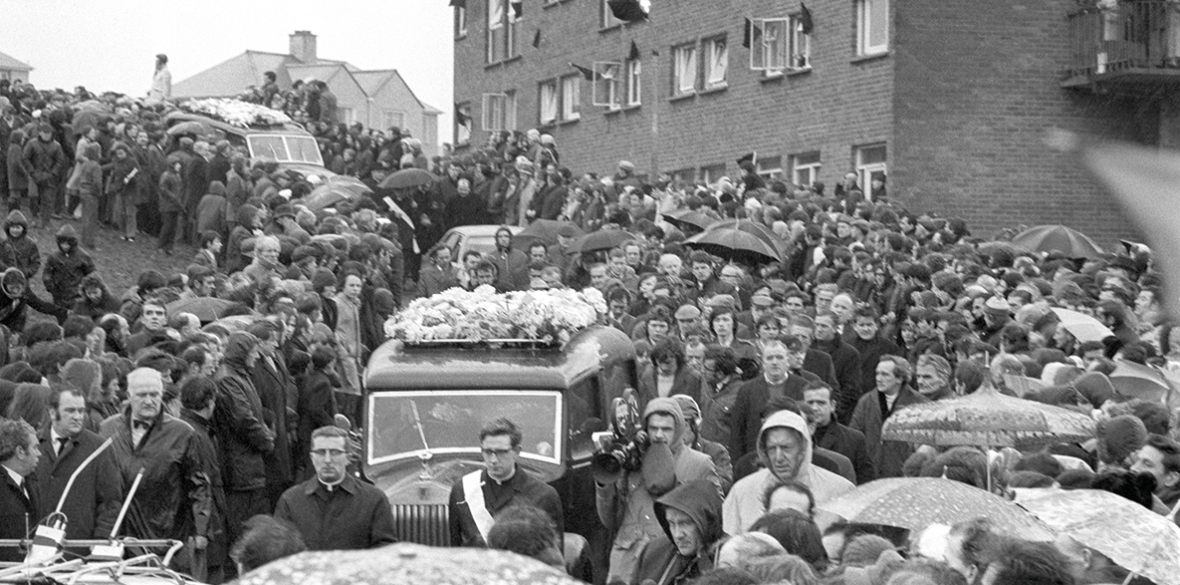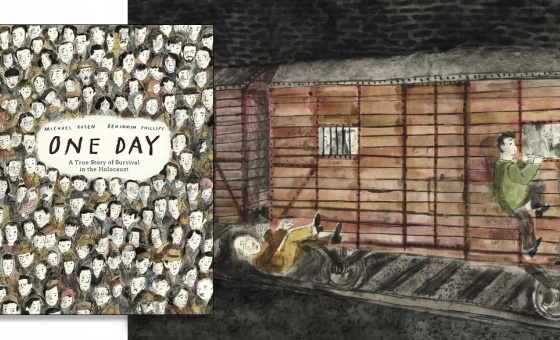This is the last article you can read this month
You can read 5 more article this month
You can read 5 more articles this month
Sorry your limit is up for this month
Please help support the Morning Star by subscribing here
ON FRIDAY July 2, like the vast majority of people who believe in justice, I was saddened to hear the news that the families of Bloody Sunday victims will not see those accused of the murder and attempted murder of their loved ones face justice.
While those of us that value truth and justice were dismayed by this decision, there were of course those who jumped for joy, hailing it as some kind of success.
The Daily Express, which campaigned to protect veterans from prosecution, ran the headline: “Witch-hunt against Northern Ireland veterans dealt blow after two cases dropped.”
It once again repeated the claim that veterans were being hauled before the courts while terrorists were released due to the 1988 Good Friday Agreement (GFA), moreover, terror suspects would not face prosecution.
If this view was based on the detail of the GFA it could be argued that veterans were getting a raw deal.
However, while it’s true that prisoners convicted of conflict-related offences (both loyalist and republican) were released early, with some having only served a short period from their conviction, the vast majority of prisoners released as part of the GFA had spent many years behind bars.
It is estimated the combined years spent in incarceration could be measured in the hundreds of thousands.
What about the letters given to suspects of conflict-related offences? Were they handed out to all and sundry to escape justice? Of course not.
In the main, these letters were given to former paramilitary members who had gone on the run.
They were described as “letters of comfort” from the Police Service of Northern Ireland, confirming that at that time, they had no evidence against an individual that could result in their arrest and prosecution on their return.
However, what the letter didn’t do was completely exonerate them from prosecution if the evidence became available in the future.
By contrast, from when the British army was sent to the North of Ireland in August 1969, until the Good Friday Agreement was signed in 1998, there have been four British soldiers convicted of shooting civilians while on duty.
All four were convicted of murder, with one having his conviction overturned on appeal. Although all were given a life sentence, all four were freed after no more than five years of their sentence and allowed to return to the British army.
However, to reinforce the narrative of a “witch-hunt” the Express turned to former Grenadier Guardsman Alan Barry, who opined that “millions of pounds have been wasted on these vexatious prosecutions that never had a hope of success.”
Without a hint of irony he added that they “have made a mockery of the law.”
I would suggest Barry do two things. First, read the final report on the Saville inquiry which exonerated all those killed or injured on Bloody Sunday by stating: “British paratroopers lost control, fatally shooting fleeing civilians and those who tried to aid civilians who had been shot by British soldiers. The British soldiers had concocted lies in their attempt to hide their acts. The civilians were not posing any threat.”
Then, having read it, he should check the definition of the word “vexatious.” If he did, he would see how inappropriate and hurtful to the families of the victims his comments are.
However, to keep up the momentum of the non-existent witch-hunt, the Express also turned to former British army officer Richard Kemp, who, when talking about the deaths of innocent civilians in the North of Ireland, appears to find it impossible to do so without inserting the word “terrorist” somewhere in his script.
Kemp didn’t fail on this occasion either, telling the Express that “soldiers were under pressure, often tired, often fearful for their own safety and some did make mistakes. But terrorists went out to kill.”
Either by ignorance or choice, Kemp must have missed the statement by Stephen Herron, the director of public prosecution for Northern Ireland, who made it clear that the decision not to prosecute the soldiers in no way undermines previous findings that those killed and injured in were entirely innocent.
Nevertheless, Kemp then went on to say: “In my view, this is a political campaign by Sinn Fein to rewrite history and portray their terrorists as freedom fighters and the British army as oppressors.”
There is so much wrong with Kemp’s statement, it is difficult to know where to begin.
However, to concentrate on the more salient points, first, it isn’t a political campaign by Sinn Fein, it is a quest for truth and justice by the families of innocent people killed in the North of Ireland.
Moreover, not only were they unarmed, innocent civilians, many were wrongly labelled as terrorists to justify their deaths.
Kemp also appears to be angered that the British army is being portrayed as some kind of oppressor.
There are many very good reasons for that. For example, in 1970, the British army picked one section of the political divide in one of the poorest communities in West Belfast, the Lower Falls, and invoked a curfew lasting 36 hours.
During that period, in its search for weapons, doors were kicked in, rooms ransacked, furniture damaged, televisions broken, floorboards ripped up. There were allegations of cash stolen from meters and unnecessary physical violence against occupants — and four innocent people were killed, with no-one held responsible.
It is blindingly obvious that if any military force controlled a section of the community in this way by using tactics of oppression, they will be seen as oppressors.
Finally, is Sinn Fein trying to rewrite history? No, but the families of Bloody Sunday are — and rightly so.
If history has incorrectly recorded a victim as a gunman lawfully killed by security forces when they should have been recorded as an innocent victim shot and killed, then, yes, history needs to be rewritten, however distasteful some might find it to be.
Richard Rudkin is a former soldier who served in the North of Ireland.









